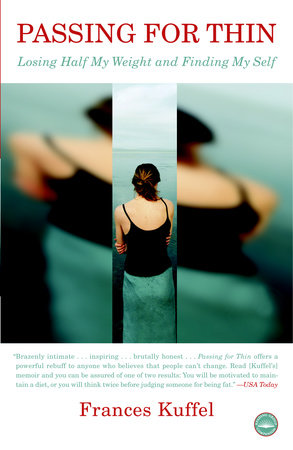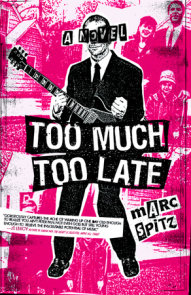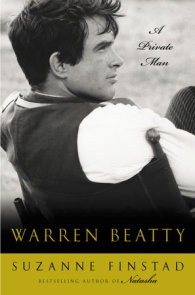READERS GUIDE
Frances Kuffel found herself in a new world when she lost half her body size. Experiences most people have had by the time they’ve reached adulthood, dating and heartbreak, following their ambitions with confidence, making a home and identifying their community – were daunting first-time challenges that she had to negotiate, with outside help and advice, one at a time.If you’re part of a reading group, the following questions about food and eating, body image, and authenticity may spark an even more lively discussion by highlighting key passages, exploring underlying themes and motifs, and helping you relate this memoir to your own life.
Questions and Topics for Discussion
1. Did Frances’s descriptions of eating and her relationship with food make you think about things you rely on that might be dangerous buffers or substitutions?
2. Has your body shaped your life? Why or why not, and how?
3. How much has popular culture affected your attitude toward your body?
4. Have you ever had a defining moment in which you realized something fundamental about the way you have lived your life? How did you act on the realization?
5. Why do you think a 12-step program was successful for Frances when other diets and methods had failed?
6. Frances writes criticizes “fat serenity,” the philosophy that advocates accepting one’s body at a larger size, as unreasonable. Why couldn’t she accept her size? Should “sizism” be a civil rights movement in the way that feminism, gay rights and racial equality have been?
7. Why does Kuffel spend so little time on the actual diet she followed?
8. Frances enlists a number of advisors in the course of the book, relying on them to tell her what to eat, how to dress and wear her hair, guide her free time, how to think and feel about herself. Does this make her a weak person? On whom do you rely and for what?
9. What role does “passing” play in the author’s account of her newly thin body? Have you ever felt you were only “passing” for/as something? Does the feeling of passing make you less authentic?
10. Kuffel admits that “I don’t really like fat people much.” Why would a formerly obese person have such a prejudice? What do you think about fat people?
11. Frances writes that “finishing is not success.” Does she find success in the course of the book? Beyond finishing a project, how do you define success?
12. Which do you think is the “real” Frances Kuffel, the fat or the thin one? Do you think there are aspects of obesity she was grateful for after she lost weight? If you were to accomplish something you’d always wanted, how would it change you and what of yourself would you want to keep from “before”?
13. Frances finds an identity to inhabit from her two boyfriends’ neat categorizations of why they liked her. The Boy from Connecticut found her beautiful and funny, while The Catholic Boy thought she was pretty, smart and nice. Have your romantic involvements given you a better sense of yourself? Is there anything wrong with that?
14. Why does Frances begin to eat in the last two chapters?
15. How would you describe the “note” on which the book ends?




















